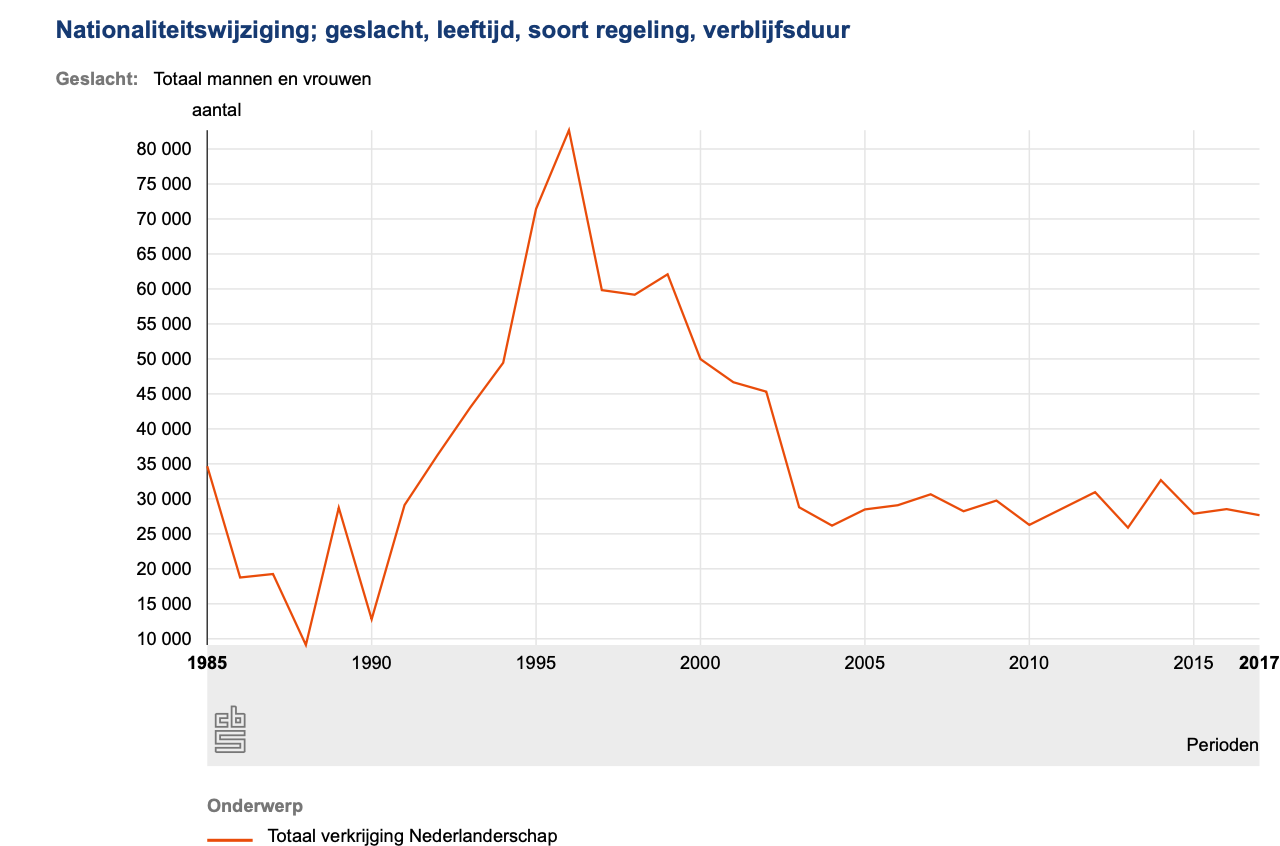The acquisition and loss of citizenship in the Netherlands is regulated by the Netherlands Nationality Act, which came into force in 1985 and has been frequently amended since then. A major revision came into force on 1 April 2003, adding among others a language and integration test as a condition for naturalization.
Residency requirement
The minimum residency requirement for ordinary naturalization in the Netherlands is five years. This requirement does not apply in a number of situations. For example, persons who are married to or a registered partner of a Dutch citizen can submit their application after three years of marriage or registered partnership, and stateless persons can submit their application after three years of residence.
For children of immigrants, a so-called ‘option procedure’ provides in many cases a quicker and easier access to Dutch citizenship, for example, by waiving the requirements to renounce one’s other citizenship and to do a language and civic integration test. Children, who were born in the Netherlands and have lived since birth with a valid residence permit, or those who have been living the Netherlands since the age of 4, can make use of this procedure, among others. This procedure is also less costly (see here for details).
Dual citizenship
The Netherlands does not allow dual citizenship. People who want to obtain Dutch nationality through naturalisation are required to renounce their other nationality if possible. There are a number of exceptions to this rule, which apply e.g. to applicants who are married to a Dutch national or who have a recognised refugee status in The Netherlands.
Language and/or civic integration test
In 2003, the so-called integration exam was introduced as a result of the revised Dutch Nationality Act. The test requires knowledge about Dutch society as well as language skills in writing and listening and costs 350 Euros. The cost of the integration course varies per school.
Application fee
In the Netherlands, the application fee for naturalisation is rather costly. It costs 855 Euros to submit a single application.
Citizenship for second generation
For children of immigrants, a so-called ‘option procedure’ provides in many cases a quicker and easier access to Dutch citizenship, for example, by waiving the requirements to renounce one’s other citizenship and to do a language and civic integration test. Children, who were born in the Netherlands and have lived since birth with a valid residence permit, or those who have been living the Netherlands since the age of 4, can make use of this procedure, among others. This procedure is also less costly (see here for details).

source: Statistics Netherlands
Data
Our researchers make use of register-based micro data provided by Statistics Netherlands based on municipal population registers and complemented by information from the Social Statistical Database. Some statistics on the number and types of citizenship acquisition per year since 1996 can be explored through the online statistical database Statline [in Dutch].
For more information on citizenship law and procedures in the Netherlands, visit the country profile of the Netherlands on the website of the Global Citizenship Observatory (GLOBALCIT).
For more information on the naturalization procedure in The Netherlands, see the website of the Immigration and Naturalisation Service.